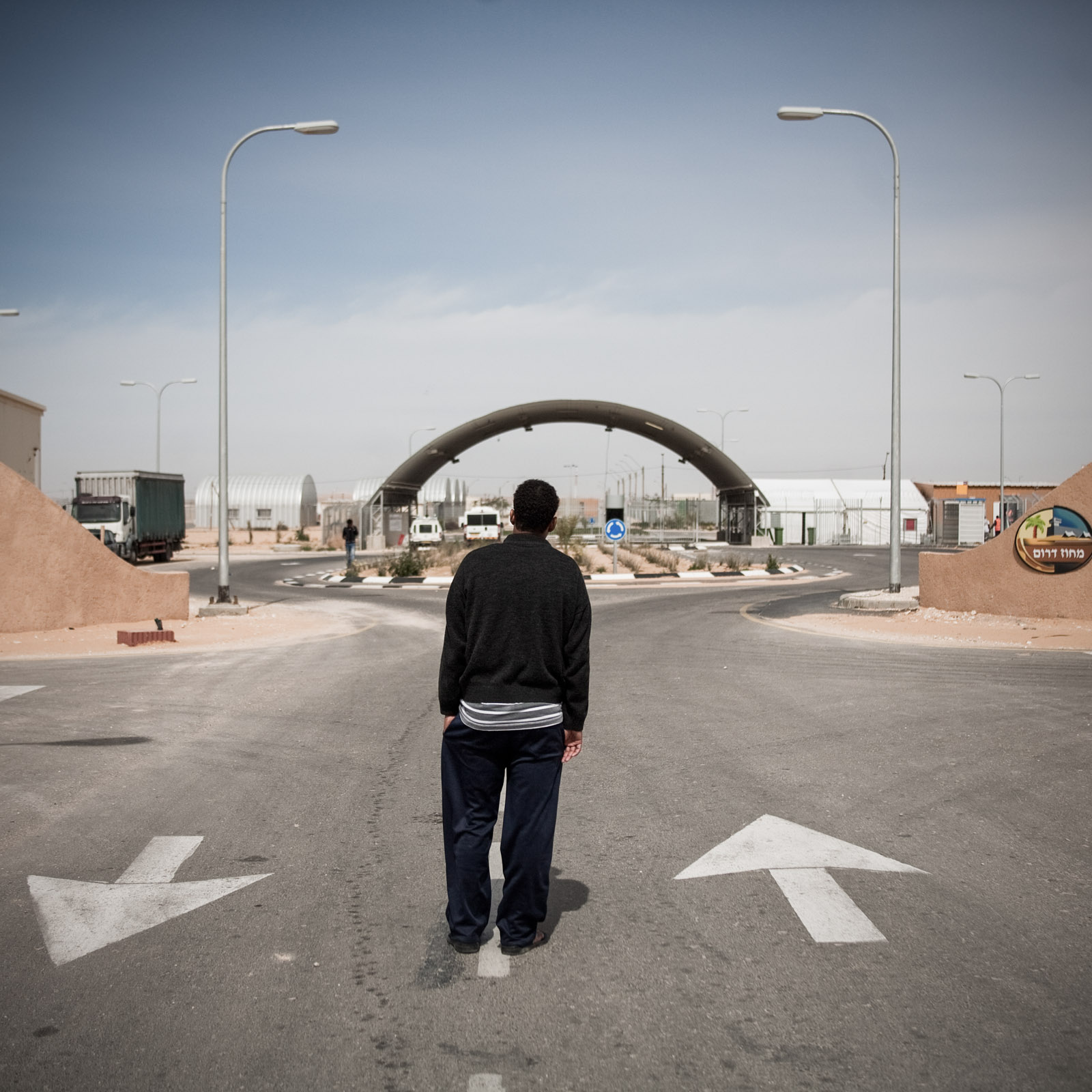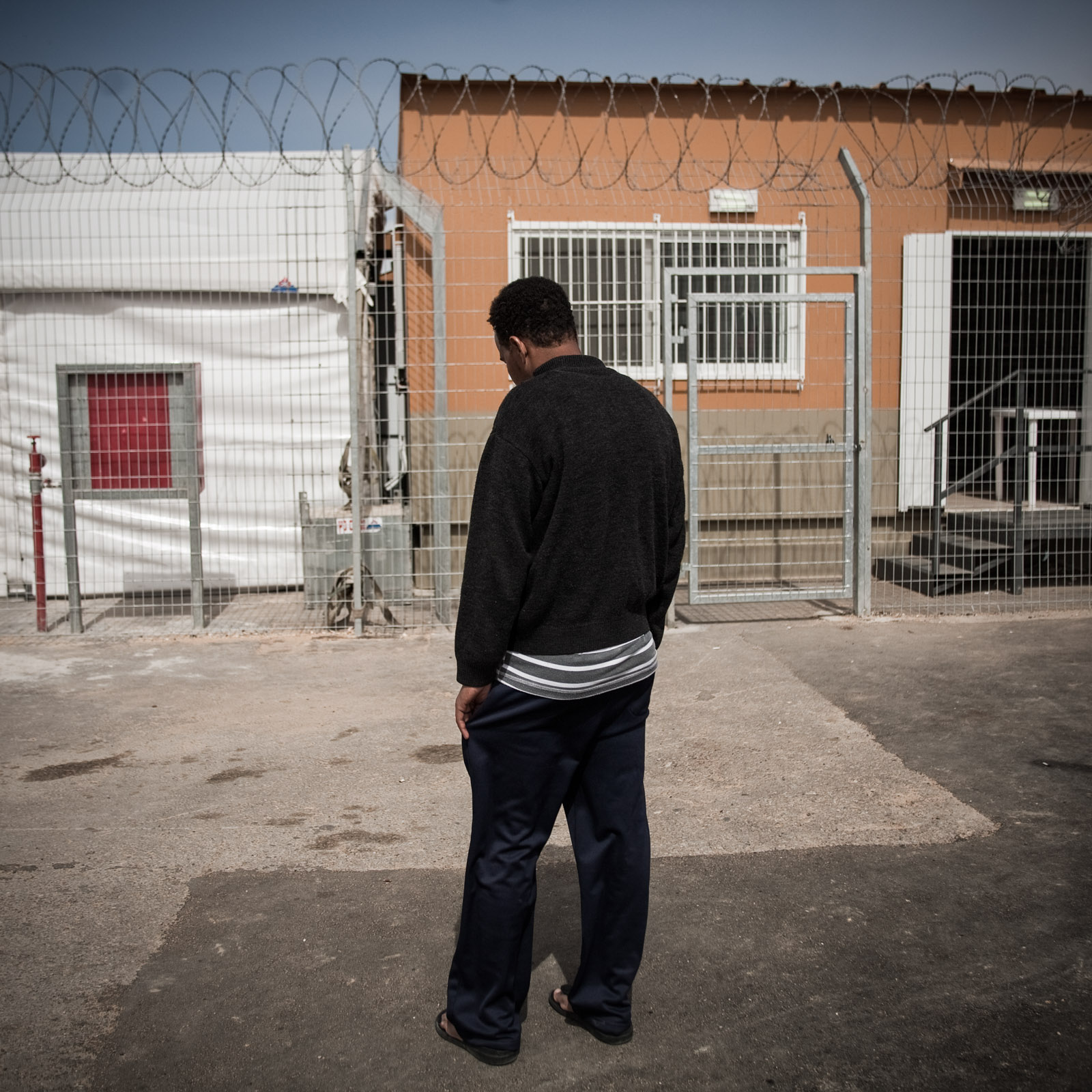Holot, the Desert Prisonners
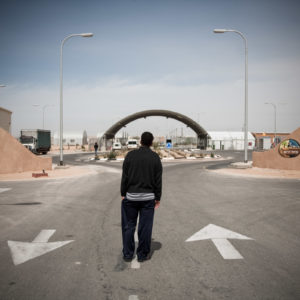
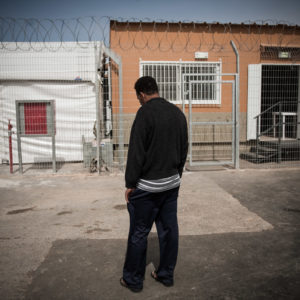
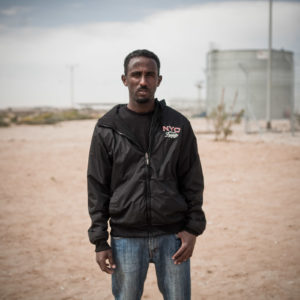
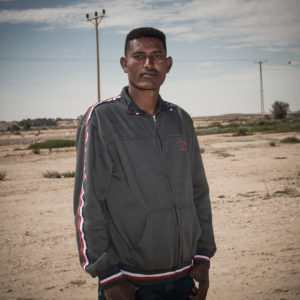
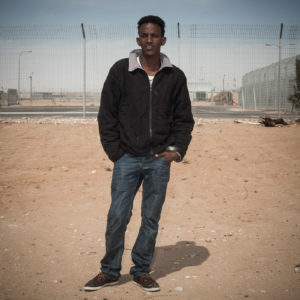
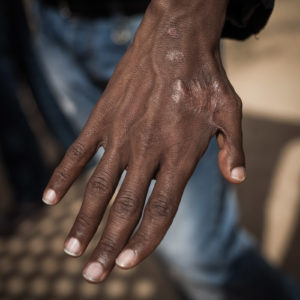
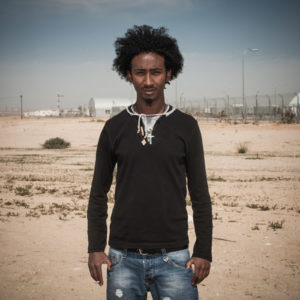
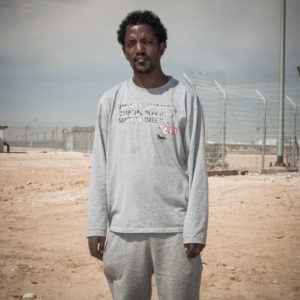
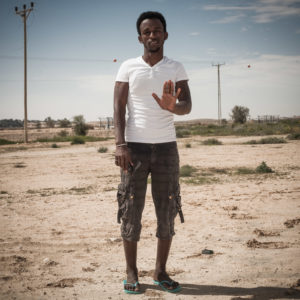
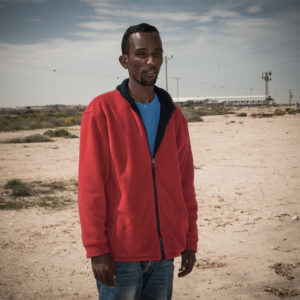
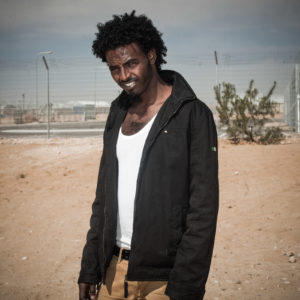
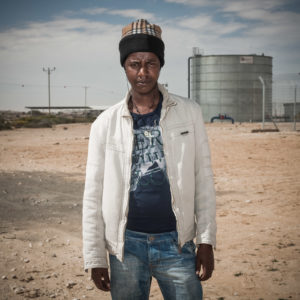
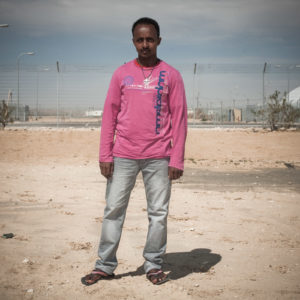
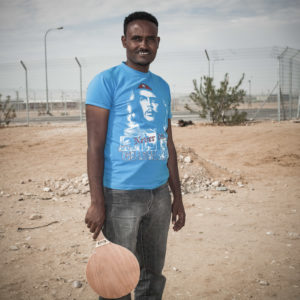
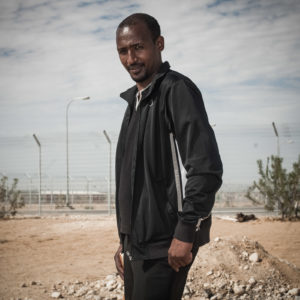
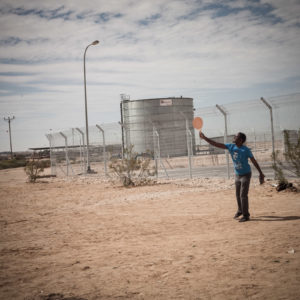
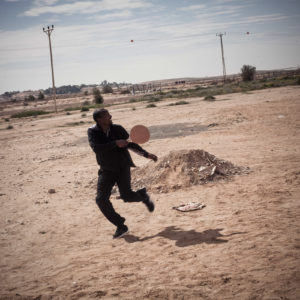
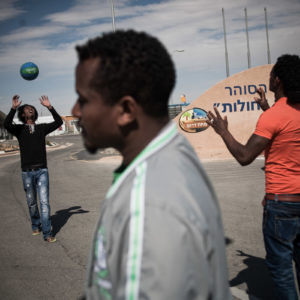
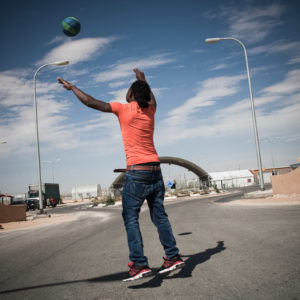
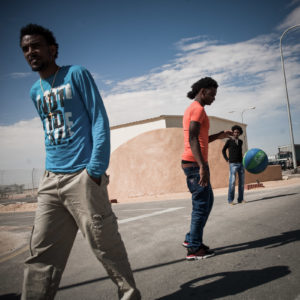
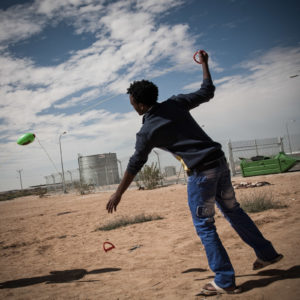
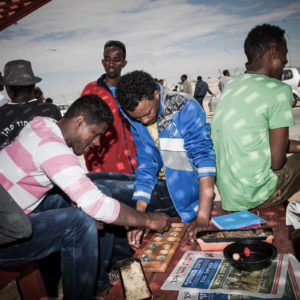
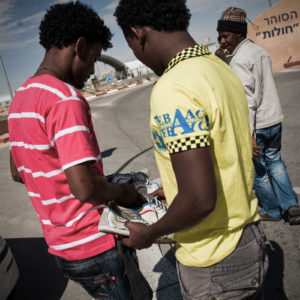
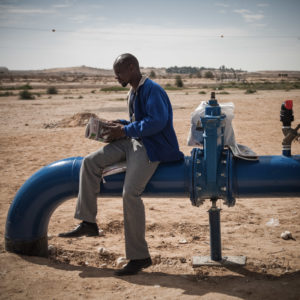
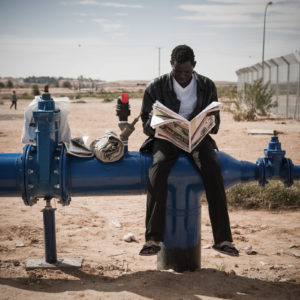
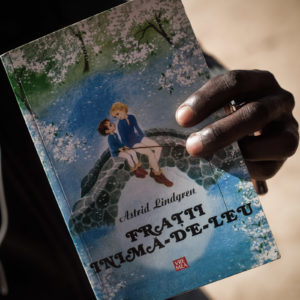
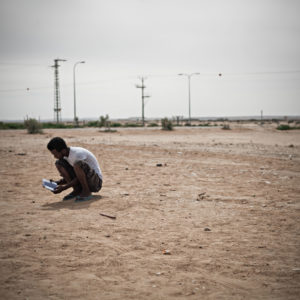
A refugee from Erytrea, in the detention center of Holot in the middle of the Negev desert, near the Egyptian border.
A refugee from Erytrea, in the detention center of Holot in the middle of the Negev desert, near the Egyptian border.
Philmon, 27. He spent two years in the Saharonim prison, after crossing the Sinai. He quit Erytrea after denouncing the bad treatment that a friend of his was suffering from in the army. After crossing Sudan, he was kidnapped in the Sinai desert by bedouin tribes. He spent 4 months there, and was tortured, burnt and witnessed rapes. His family sold their house to pay a 3000$ ransom.
Girmay, 32, from Erytrea. Working in Tel Aviv for 6 years, he was working in construction and can speak hebrew well. He left Erytrea for political reasons. But he didn't have enough money to go to Europe, so he went to Israel. He had trouble renewing his visa, so he was arrested, sent to Saharonim prison, then Holot, for the past two months.
Hagus, 22, from Erytrea. He's been in Israel for two years. He was tortured in the Sinai before arriving.
Hagus, an erytrean refugee shows the scars that were caused by electrocutions when he was kidnapped by human traffickers in the Sinai desert in Egypt.
Bereket, 24, from Erytrea. He spent two years in jail in Israel. He left Erytrea to avoid conscription in the army. IN Erytrea, military duries are unlimited, he saw his brothers spend many years serving. But now, he'd give anything to go back to his country and leave Israel.
Mussie 27, from Erytrea.
Mingus, 24, from Erytrea.
Sid, 22, from Erytrea.
Tesfex, 23 from Erytrea. He's been in Israel for 4 years and in detention center for 1 year.
Awad, 21 years old
Musie, 23, comes from Erytrea.
Taeme 27, from Erytrea.
Minreteab, 32, Erytrean. He and Taeme were friends back in their country and found each other again in the detention center.
On saturdays, the migrants can play outside the center, thanks to the associations who bring them games and basket balls. Otherwise, no distraction is allowed inside the center.
On saturdays, the migrants can play outside the center, thanks to the associations who bring them games and basket balls. Otherwise, no distraction is allowed inside the center.
On saturdays, the migrants can play outside the center, thanks to the associations who bring them games and basket balls. Otherwise, no distraction is allowed inside the center.
On saturdays, the migrants can play outside the center, thanks to the associations who bring them games and basket balls. Otherwise, no distraction is allowed inside the center.
On saturdays, the migrants can play outside the center, thanks to the associations who bring them games and basket balls. Otherwise, no distraction is allowed inside the center.
On saturdays, the migrants can play outside the center, thanks to the associations who bring them games and basket balls. Otherwise, no distraction is allowed inside the center.
On saturdays, the migrants can play outside the center, thanks to the associations who bring them games and basket balls. Otherwise, no distraction is allowed inside the center.
Refugees rush to get some clothes and shoes brought by assocations.
A refugee reads a newspaper outside Holot. Inside, they're not allowed to bring any book or paper.
A refugee reads a newspaper outside Holot. Inside, they're not allowed to bring any book or paper.
A refugee shows a book, in romanian, brought by an association.
Mingus, 24, from Erytrea, reads outside the center.
They travelled thousands of kilometres, suffered from hunger, thirst, crossed the Sinai desert in Egypt, to end up in another desert, the Negev, in Israel. In the middle of nowhere, surrounded by rocks and short bushes, inside a large security zone, that also counts a prison for Palestinians and a military base, the detention center of Holot opened last December. Israel had been forced by the Supreme Court to stop detaining asylum seekers without trials for up to three years. In reaction, the State transferred all the migrants, coming mostly from Sudan and Erytrea in that “open” center. But open is too much of a word: with three ID checks per day, a lack of contact with the outside world, no activities allowed, the asylum seekers of Holot have to face harsh conditions. Even more so now that Israel allows to detain them for indefinite periods of time, potentially for life.
The climate has gotten worse in the country, reinforced by the “no infiltration” policy enforced by the government, who doesn’t want to welcome the African migrants. They’re estimated to about 50.000. Last January, they had massively protested against the criminalization of the immigration.
Now, at Holot, they can “go out”, but that freedom is artificial. Every night, they have to go back inside, where they suffer from the cold, bad food and no perspective at all for the future. Half of them have already suffered from tortures and kidnappings in the Sinai, most have fled their country for political reasons or simply to escape wars. “Israel, we thought it was democracy”, Habtum, 30 years old, says sadly.
Far from the promised land, the country they have given so much to reach won’t offer them a future. Some can’t wait to leave it and go back to their family. If they’re ever freed.
Stories | Tags: Holot, migrant, prison, refugee.
Propulsé par WordPress et bidouillé à partir de F8
Contenu protégé, merci de me contacter pour toute utilisation
© 2024 Juliette Robert – Photographe
